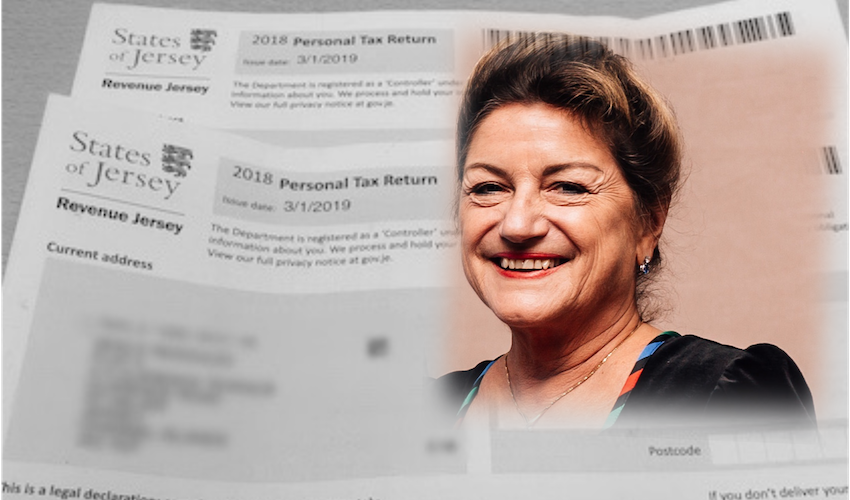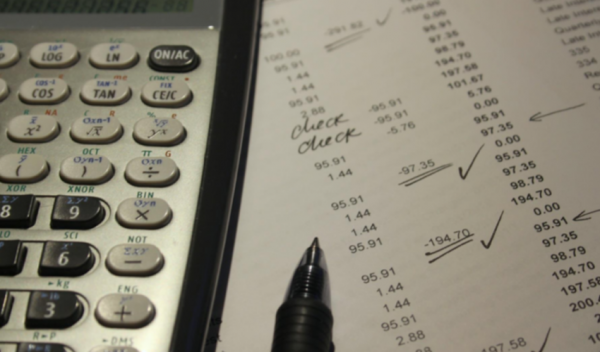


It might be Jersey’s most talked about tax reform of the last decade, but moves to make married and unmarried taxpayers more equal could end up costing some couples thousands a year, the Treasury Minister has warned.
That's one of the reasons why the much-called for change is taking so long to adopt, as the Treasury works through the actual effect on, “...approximately 8,300 married couples and civil partnerships in Jersey, who would have to pay up to £2,300 a year more in tax per couple” – and that “many of these couples [are] single-income households in the lower income brackets.”
Those problems emerged at a Scrutiny hearing yesterday, where the Minister, Deputy Susie Pinel, and her officers were grilled about the modernisation of what has been described as the island’s “archaic” tax system.

Pictured: The Treasury are trying to find ways to alleviate the negative impact on some lower-earning couples.
Following Deputy Pinel bringing the first in a series of reforms to the island’s personal tax system – which has been largely left untouched since 1928 – her intention to create wholly independent taxation has thrown up some unexpected complications.
If it were implemented overnight, the government would gain an extra £10million in revenue, due to its unforeseen impact on taxing already married couples in Jersey.
When asked by Chair of the Corporate Services Scrutiny Panel, Senator Kristina Moore, why the draft legislation for the tax reforms hasn’t been included alongside her first proposition, the Minister said: “What we realised quite quickly was we couldn’t do the whole thing in one go, it’s going to be over stages until 2022.”
The Minister explained that this is why the first proposals – reforms of what is referred to as the ‘married man’s taxation’ – have been brought ahead of any moves towards independent taxation. These plans, which will be debated by the States Assembly on 4 February, propose getting rid of the controversial obligation for a married man to give his permission so that his wife can participate in her own tax affairs.
It also allows both spouses in a married couple or civil partnership to take joint responsibility for their tax affairs.
If approved, this proposition will also start the clock running on Deputy Pinel’s longer-term plan to make tax fully independent – meaning that everyone is taxed as an individual with their own personal allowance, regardless of their marital status.
Responding to questions from the Chair, the Minister said: “The rest of it [the tax reforms] will have to be done in stages once we’ve done a further consultation because it is so complicated and it’s revealed that… it will affect about 8,300 married couples on lower to middle income and we can’t have them being negatively affected so more work needs to be done so that would be the second stage of this.”

Pictured: A detailed breakdown of how different earning couples will be affected by the change - if brought in overnight.
Deputy Pinel also said that the Treasury wants to have the first reforms to marriage tax approved by her fellow States Members before moving onto to phasing in independent taxation.
Elaborating on some of the difficulties of bringing all the reforms in one go, Deputy Pinel explained: “It’s very difficult to explain because it’s very complex, but briefly what I’ve just mentioned is that there are rather detrimental sides to some couples because of the allowances on those either on one income or two lower incomes. And we can’t proceed with something that’s going to be detrimental to people."
In the proposition itself, the report indicates that the couples who would be worse off under independent taxation are where either only one spouse earns an income or there are two income earners within the couple, but the second earner does not earn enough to fully use their personal allowance.
It explains that, if the new system were imposed immediately, “approximately 8,300 married couples and civil partnerships in Jersey, who would have to pay up to £2,300 a year more in tax per couple” – and that “many of these couples [are] single-income households in the lower income brackets.”
Between these negatively affected taxpayers and some married couples that stand to gain from the system change, the Government could be set to gain a net revenue increase of £10million.

Pictured: Independent taxation, as it stands, would bring in £10million extra in revenue for the Exchequer.
When asked about this, Comptroller of Taxes Richard Summersgill offered: “If independent taxation were introduced, all other things being equal, it would actually generate £10million from low income couples – which is why, obviously, further work is being to done to make sure that does not happen."
Senator Moore aimed the question at Deputy Pinel, asking: “So, Minister, are you content with that position that those £10million would be generated from those lower income couples?”
She replied: “Well, clearly not.”
Her Assistant Minister, Deputy Lindsay Ash added: “It won’t be because we’re not going down that route.”
Deputy Pinel continued: “The object of the whole procedure is to remain tax neutral so that people don’t lose and the Exchequer don’t obviously benefit to that extent it would be completely unacceptable.”
Therefore, the Treasury are now considering options in order to alleviate the negative effects on already married couples or civil partners within those brackets. These include offering the option for couples married before a certain date to choose whether they move the new system, or stay with married taxation; transferability of allowances; or gradually freezing marriage allowances.
Comments
Comments on this story express the views of the commentator only, not Bailiwick Publishing. We are unable to guarantee the accuracy of any of those comments.